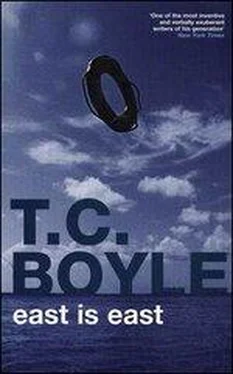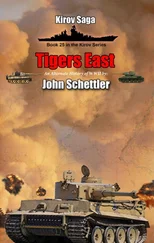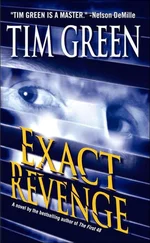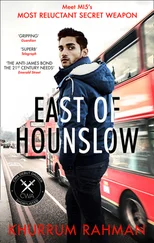“So, how are you feeling?” Ruth repeated. “They treating you well? Is there anything I can get you?”
Hiro said nothing.
“How about your grandmother? Do you want me to write her? Phone her?”
Hiro didn’t respond. There was another silence. After a long while he turned his mournful eyes on her and said: “You lie to me, Rusu.”
Now it was her turn. She waited.
“In the house,” he said, and his voice sounded parched, dried up, torn out by the roots, “you are the one. You tell them I am here.”
So that was it. She wasn’t going to have to defend herself over the boat and the swamp and Turco—apparently that was lost to him. He was taking her back to Tupelo. All this time he thought she was the one who’d betrayed him. “No,” she said.
“Yes. You never have any idea to take me to mainrand.”
“No. It was Saxby. He saw you there on the porch and he went to the police without telling me. I never knew till it was too late.” She lowered her voice. “I did want to help you. I do. I still do.”
He gazed out the window. They were five stories up. There was nothing to see but dead clouds in a dead sky. “I’m tired,” he said after a moment.
She wanted to tell him not to worry, that everything was going to be all right, that she’d look after him and get her father to help and Dave Fortunoff too—he was well connected in Savannah—but she couldn’t. She felt awkward. He looked terrible. The deputy was watching her. “Okay,” she said, rising from the chair, “I understand. It’s all right. I’ll come back tomorrow, okay?”
He glanced up at her, struggled to lift his hand from the sheets and spread his palm in valediction. “I say goodbye now.”
She felt for him in that moment, a quick sharp flooding of the glands, and she bent forward to touch her lips to his cheek, guard or no guard. “See you tomorrow,” she said.
He never answered.
The City of Brotherly Love
The dreams were of things he couldn’t admit, dreams OF torment and horror and hate. They came at him as he drifted in some disembodied realm where colors flashed in his eyes and faces bled into one another without reason or chronology. And a hiss, always a hiss, as of the air rushing from a punctured lung. He saw Chiba become Wakabayashi and Wakabayashi become Unagi and felt the slap of their multiple hands. He saw his mother at the bottom of the pond, her ravaged fingers, the rictus of her mouth, and the hiss became a scream, silent and prolonged. He saw Ruth and her face was the face of his captors and tormentors, and it was their hate that burned in her eyes. And then he saw himself, and he was at the bottom of the dead black endless American swamp, his flesh gone white, flaking, dropping from the bone, and then he was rising, apart from himself, above them all, rising toward the trembling aqueous light of the surface.
He emerged on a room in a hospital in the bright light of day. Above him floated a bag of clear liquid that fed its way through a tube and into his arm. He tried to lift his arm but found that he couldn’t. There was a man at the door, a long-nose in uniform. A nurse—she was a Negro—hovered over him. “Well,” she said, “at last. Feeling better?”
Better? He was feeling nothing, nothing at all. He’d been swallowed by the crocodile and he’d been living in its belly. He looked at the nurse and saw the grinning mouth and the serrated tail and his eyes fell shut and the dreams rushed over him again.
In the morning—at least they told him it was morning, and for lack of any standard against which to measure the information, he took their word for it—the great gift of consciousness was restored to him. Or perhaps it wasn’t such a gift after all. He saw the long-nose at the door and understood, without recalling the details perhaps, but in a syllogistic way, that he’d failed, that he was a prisoner once again, that the world and his life within it were hopeless. A doctor examined him, asked inane questions: How did this feel? Did he know where he was? Who he was? It felt bad. He was in the custody of the hakujin police. He was a happa, a butter-stinker, half a long-nose. He didn’t bother to answer.
In the afternoon another long-nose appeared, very well dressed, and introduced himself as his legal counsel. With him was a Japanese—a non-butter-stinker, pure bred, a member of the august and nonpareil Yamato race—the first such Hiro had laid eyes on since making his leap from the wingdeck of the Tokachi-maru. He was short and soft, this Japanese, with a puffy face, closely cropped hair and glasses that were too big for his head. His name was Hanada and he spoke with a northern accent and a breeziness that seemed inappropriate to the situation. But then the long-nose began to speak and Hanada-san became a machine, interpreting the hakujin’s words in a flat mechanical voice. Hiro, he explained, was too ill to go to court—there was no question of that—and so he would be arraigned here at the hospital, via videotape. (And sure enough, even as he spoke, three more butter-stinkers edged into the room, two fondling briefcases and another balancing a video camera on his shoulder.)
Hiro wanted only to hide himself. He was defeated, humiliated, a failure like his hopeless mother and his hippie father. He refused to speak to any of them, in English or Japanese. The first long-nose, his counsel, listened to a lengthy list of charges and entered a plea for him: Not guilty.
Well, yes, of course he wasn’t guilty—that went without saying. Not guilty of any of their meaningless charges, anyway. What he was guilty of was stupidity, naïveté, guilty of thinking the Amerikajin would accept him in common humanity. He was wrong, and that was his crime. He had failed, and that was his fate.
The reporters came in the evening, and he experienced his one moment of weakness, the moment in which he wavered and came close to abandoning his resolve. They wanted his story and for a moment he wanted to give it to them, to rub their long noses in it, for a moment he imagined that story appearing in the newspapers and on TV, and somewhere, somehow, stirring Doggo from his slumber, and he imagined his father coming to his rescue like a cowboy on a horse. But it was stupid. Foolish. The burned-out core of a dream—ashes, that was all it was. The deputy held the reporters in the hallway while they fired their questions. Hiro looked up at the clamor of voices, and he turned his head away.
And then Ruth came. She was there in the chair beside the bed with the long white legs that had captivated and enslaved him and she was a reporter too. He looked into her eyes and saw that she didn’t know him at all. She swore she hadn’t betrayed him—it was Saxby, the bōifurendo, the butter-stinker: he should have known!—and he softened, almost broke. But she wasn’t his Rusu, she didn’t care, not really. She was playing another role, using him as she’d used him before. He told her he was tired. He told her goodbye.
What Ruth didn’t know, what the attorney didn’t know or the butter-stinker at the door or the nurse either, was that Hiro had a plan, that he wasn’t down and defeated yet: he would escape them all, and he knew it and drew strength from the knowledge. They’d fed him the typical things, the Amerikajin Jell-O, the peach halves, the macaroni and cheese, but they hadn’t given him chopsticks, hadn’t given him a fork or a knife. They gave him a spoon, a poor pitiful thing not three millimeters thick. But it was rigid and cold and it would serve the purpose. He hid it under his pillow.
He waited for night. For the long pulsing dimly lit hours when the nurses tread with a lighter foot, when the stabbings and shootings and gang fights taper off and the terminal patients settle in for their grim solitary vigil. This was the hour when the hakujin guard, like the guards before him, would close his eyes, for just a minute …
Читать дальше











